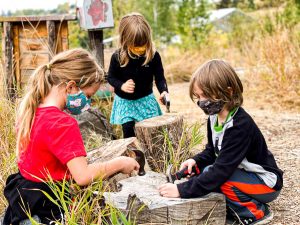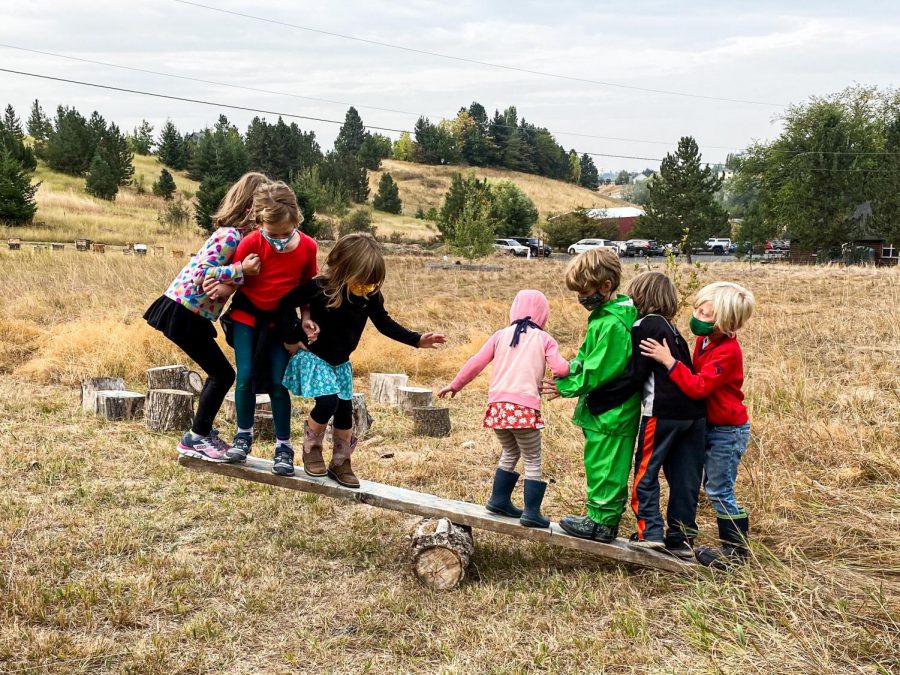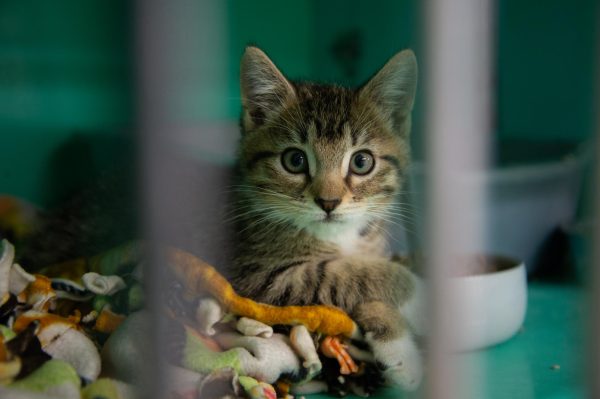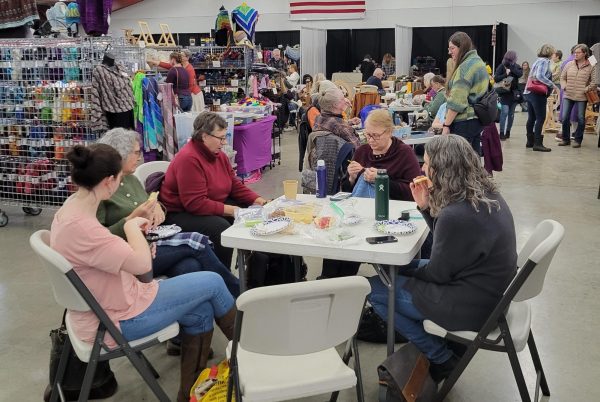Outdoor programs foster growth for Palouse youth
Children make discoveries through play-based learning; learn independence, environmental stewardship
The Palouse Roots and Nature Explorers programs at the Palouse-Clearwater Environmental Institute started during the pandemic as a way for youth to safely socialize with their peers, while learning about the great outdoors.
November 11, 2021
Through their Nature Explorers and Palouse Roots programs, the Palouse-Clearwater Environmental Institute is helping the next generation gain a new appreciation for nature — while helping them develop socially.
Nature Explorers is a program for children age 6-12 where teachers focus on experiential learning. Palouse Roots is an outdoor school for children age 4-7 where children make discoveries about the natural world through play.
The directors for both programs pride themselves on creating “little stewards of nature.”
Misha Cleveland, Palouse Roots director and lead teacher, said directly interacting with nature makes children appreciate and understand the environment more than if they were to simply read a book about it.
“They become connected to the different places they see,” Cleveland said. “They have more love for the trees that they’re climbing and more respect for not cutting them down.”
Palouse Roots runs Monday through Friday, and its classes are entirely outdoors.
Children climb the nature center’s mulch pile, pretending they are traversing glaciers in the Arctic or hunting for treasure. Later in the day, the class moves to a yurt gazebo where students explore a pond area and create art. The students also participate in tea time and a sharing circle at the end of the day.
Teachers and volunteers record each child’s progress. Cleveland provides parents with a monthly update on the social and emotional development of their children.

Students in the Palouse Roots program at the Palouse-Clearwater Environmental Institute learn independence and self-reliance through guided play sessions like the one pictured here.
Cleveland said children in Palouse Roots learn independence as they play and build forts. When the children try to lift a particularly heavy piece of wood for their fort, teachers encourage them to help each other lift it up rather than asking an adult.
“They grow and learn very quickly when they are pushed to speak for themselves and work with each other versus always relying on a teacher,” Cleveland said.
Nature Explorers Director Brooke Lowry said children in the Nature Explorers program feel empowered to complete activities responsibly and recognize their own limits. Parents do not typically let their children use knives, build fires or climb trees, but teachers in the program show children how to master these skills safely.
The children rotate through four stations where they play games, create art and learn science-based lessons. They also write in journals for reflection.
Lowry said Nature Explorers is unique in that children will notice things in their surroundings, and the class will conduct an investigation based on their curiosities.
Lowry said when Nature Explorers discussed the relationship between rivers and dams, the children created and tested dams based on how they believed humans and beavers made these structures.
Cleveland said the outdoor programs focus on social and emotional development rather than academic development. The programs inspire children to become confident and resilient.
Kristin Haltinner, associate professor of sociology at University of Idaho, said the 6-1 student-teacher ratio at Palouse Roots helped her son Ethan improve socially in a safe space.
“He gets a lot of support from teachers to help him cultivate a language to set boundaries with other kids, and I think this is a really important skill for kids to learn before they go to public school,” Haltinner said.
Haltinner initially enrolled Ethan in Palouse Roots because of the pandemic. The outdoors was a safe space for children whose parents were concerned that public schools were high-risk areas for COVID-19 exposure.
Lowry said she started Nature Explorers in 2020 to provide a way for children to move and interact with their peers in an open environment throughout the pandemic. By the end of her second session, the program had 35 children.
Lowry said parents called her program the silver lining of an uncertain time, and children looked forward to the sessions every week.
Cleveland said teachers for Palouse Roots start conversations about how people interact with nature and how to be gentle with the environment. After the children read a book about littering, they began to pick up trash at the nature center and realized they should leave the environment better than they found it.
Lowry said Nature Explorers also teaches children to “leave no trace” and propose solutions for humanity’s impact on the environment. Play-based education provides students with opportunities to practice sustainability firsthand, which as a parent, Haltinner appreciates.
“Kids who are invested in nature at an early age tend to care more about the planet and climate later in life,” Haltinner said. “Getting kids to care about fixing the planet is pretty essential to human survival.”
Parents interested in signing their youth up for either program can visit PCEI’s website to learn more.























